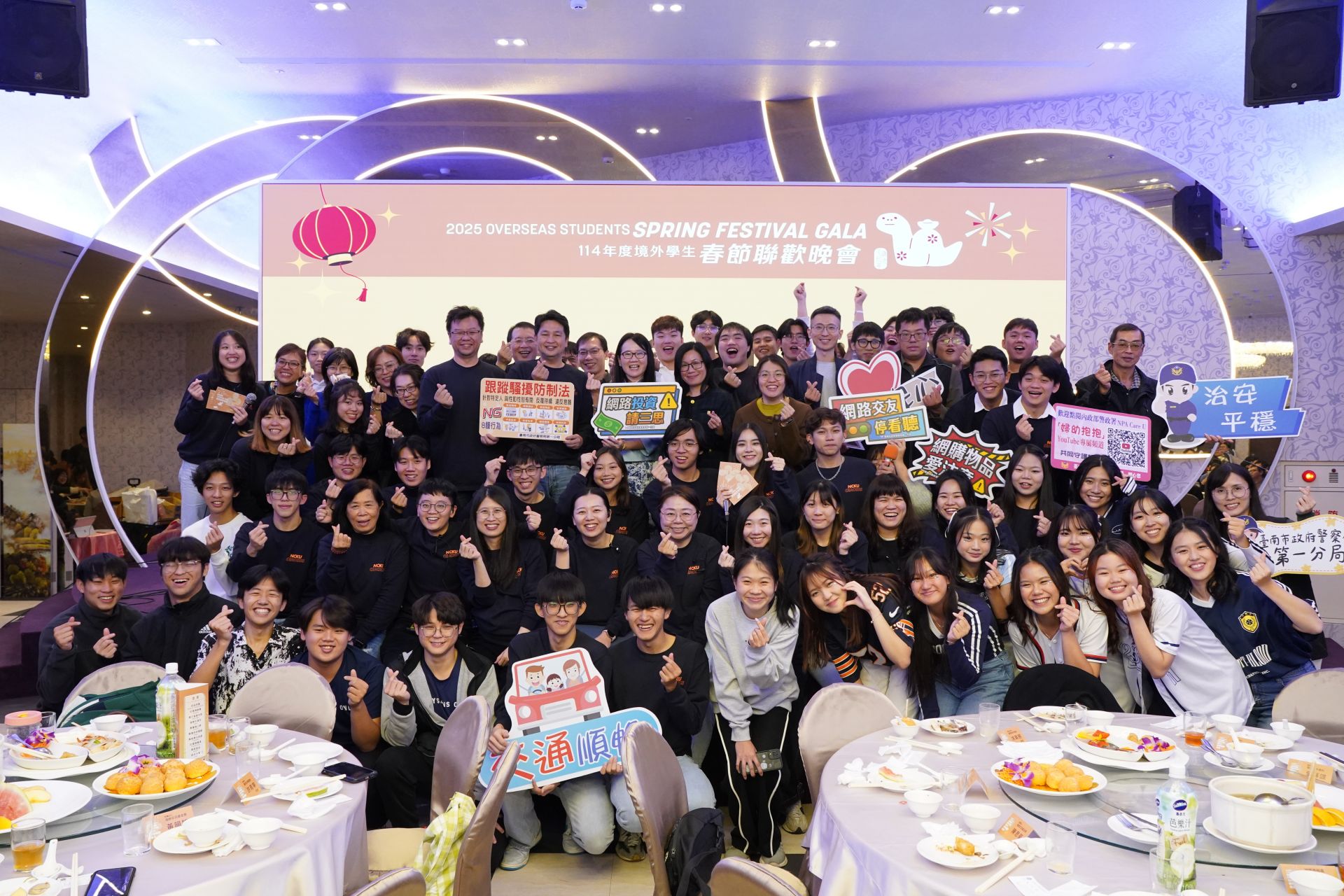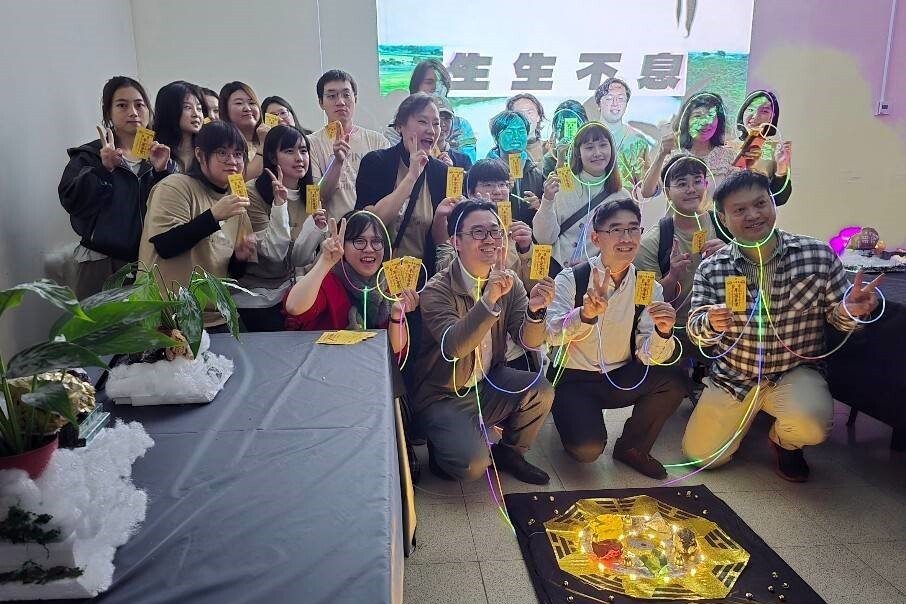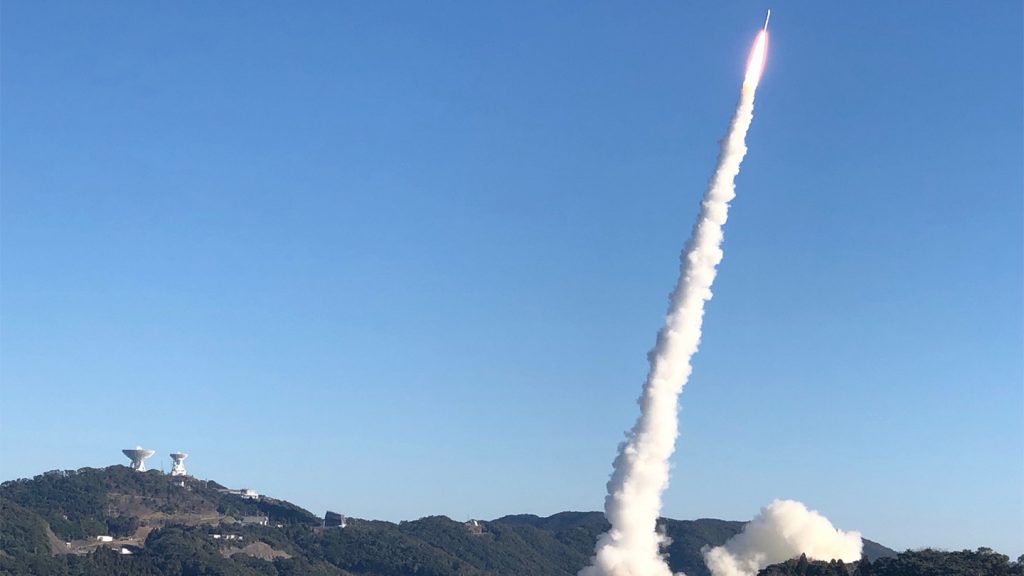After 7 years of hard work and perseverance, microsatellite mission RISESat, which is directed by Tohoku University of Japan and which NCKU is a participant of, successfully launched their Epsilon rocket from Japan Aerospace Exploration Agency (JAXA) on January 18 at 8:50 AM, GMT +8. Professor Bing-Chih Chen, chairman of the Institute of Space and Plasma Sciences, Professor Charles Lin of the Department of Earth Sciences, and other teachers and students joined NCKU president Dr. Huey-Jen Jenny Su in witnessing this historical event. RISESat made contact with ground stations at 7:00 PM, GMT +8 that night, and preliminary checks show that satellite status is normal.
In the coming weeks, once the ground station in Japan completes various secondary system inspections, scientific experiments spanning two years will commence. The NCKU research team will direct airglow and upper-atmospheric lightning observation and study space weather and the cycle of atmospheric electricity. Their goal is to understand the relationship between lightning and extreme weather, which is having an increasingly severe impact on human life, and the influence of changes in the space environment on space communication.
Professor Bing-Chih Chen’s research team was invited to join Tohoku University’s RISESat microsatellite project in 2011. They developed the Dual-Band Optical Transient Camera (DOTCam), a space optical camera that will enable the observation of space environment elements such as airglow and upper-atmospheric lightning once the satellite enters orbit. Relevant basic scientific research will be applicable to space weather-related research. Originally planned to be launched in 2013, the microsatellite was unexpectedly delayed. Professor Bing-Chih Chen emphasized that it would normally have taken 18 months for the NCKU research team to complete their part after the restart of the project, but they worked hard and finished in nine months to meet the launch schedule .
Professor Bing-Chih Chen stated that NCKU’s participation in the RISESat project demonstrates that NCKU’s space instrument R&D capabilities have reached international standards. Their performance will open up more opportunities for international collaboration, effectively enhance Taiwan’s manufacturing technologies and international visibility, and assist manufacturers in penetrating the international space industry.
The RISESat microsatellite is only 50 cm3 and 59.3 kg. To fit inside this miniature satellite, the NCKU research team successfully developed a fully-featured, compact space optical camera that weighs only 710 g. New lossless compression technology will substantially reduce data storage space and transmission time. Considering the necessity of advanced technologies taking root in the industry, they insisted that all key components be manufactured in Taiwan. The core circuit board of the camera was made with great help from Taiwan’s leading aerospace company, the Aerospace Industrial Development Corporation (AIDC).
When Tohoku University invited Professor Bing-Chih Chen’s research team to participate in the RISESat microsatellite project in 2011, they joined seven teams from five other countries (Japan, Czech Republic, Hungary, Sweden, and Indonesia ). However, unforeseen issues on the Japanese side interrupted the original schedule, and the project was not restarted until March, 2017. Fortunately, the successful launch occurred under two years later, to the credit of all participating teams and their countries.
In the coming weeks, once the ground station in Japan completes various secondary system inspections, scientific experiments spanning two years will commence. The NCKU research team will direct airglow and upper-atmospheric lightning observation and study space weather and the cycle of atmospheric electricity. Their goal is to understand the relationship between lightning and extreme weather, which is having an increasingly severe impact on human life, and the influence of changes in the space environment on space communication.
Professor Bing-Chih Chen’s research team was invited to join Tohoku University’s RISESat microsatellite project in 2011. They developed the Dual-Band Optical Transient Camera (DOTCam), a space optical camera that will enable the observation of space environment elements such as airglow and upper-atmospheric lightning once the satellite enters orbit. Relevant basic scientific research will be applicable to space weather-related research. Originally planned to be launched in 2013, the microsatellite was unexpectedly delayed. Professor Bing-Chih Chen emphasized that it would normally have taken 18 months for the NCKU research team to complete their part after the restart of the project, but they worked hard and finished in nine months to meet the launch schedule .
Professor Bing-Chih Chen stated that NCKU’s participation in the RISESat project demonstrates that NCKU’s space instrument R&D capabilities have reached international standards. Their performance will open up more opportunities for international collaboration, effectively enhance Taiwan’s manufacturing technologies and international visibility, and assist manufacturers in penetrating the international space industry.
The RISESat microsatellite is only 50 cm3 and 59.3 kg. To fit inside this miniature satellite, the NCKU research team successfully developed a fully-featured, compact space optical camera that weighs only 710 g. New lossless compression technology will substantially reduce data storage space and transmission time. Considering the necessity of advanced technologies taking root in the industry, they insisted that all key components be manufactured in Taiwan. The core circuit board of the camera was made with great help from Taiwan’s leading aerospace company, the Aerospace Industrial Development Corporation (AIDC).
When Tohoku University invited Professor Bing-Chih Chen’s research team to participate in the RISESat microsatellite project in 2011, they joined seven teams from five other countries (Japan, Czech Republic, Hungary, Sweden, and Indonesia ). However, unforeseen issues on the Japanese side interrupted the original schedule, and the project was not restarted until March, 2017. Fortunately, the successful launch occurred under two years later, to the credit of all participating teams and their countries.

SDG17The 2025 Spring Festival Gala for International Students Concludes Successfully, Showcasing the Charm of Multiculturalism
View more
SDG17Vietnam’s Can Tho University visits NCKU to promote cooperation in semiconductor and biomedicine
View more




















